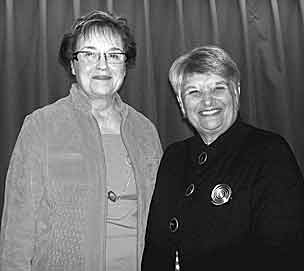

|
V8N8
- February 10-March 1, 2010:
They raised
a variety of animals on their hobby farm including several
dogs, horses, geese, rabbits and goats—at one time having
72 of them. They sold the milk and the young. This opened
up a door to start a petting zoo. Then came the goat cart
rides. They also opened Marlo’s Coffee Shop on their
premises. The two women were quite diversified in their endeavours.
When Marlo’s
Coffee Shop closed its doors, Marlo’s Music Centre was
in the process of opening its doors in 1969 in the same building.
It was a musical instrument training facility and Marianne
taught the younger children and then Louise took over from
there. Marianne played the drums and taught them, as well,
along with the saxophone, flute, clarinet, banjo and bass
guitar. Louise taught all key instruments and guitar—electric
and acoustic. It took only six months to have enough students
for both to teach six days a week. By 1972, they reached their
capacity of 120 students. Several students even went on to
have their own bands. Marlo’s
Music Centre finally closed in 1997 but the memories and contributions
to the community are everlasting. Before
Marlo’s Music Centre opened, Louise had joined a band
that was looking for a piano player. But Marianne got tired
of sitting at home when the band played for dances, so she
learned how to play the drums and joined the band as well.
And that
is how their music centre started. Both knew how to play their
instruments, but they had to learn the procedure and protocol
of teaching it. The women always found a way to turn their
passions into dollars. Marianne
always wanted to be a writer. In school, she loved writing
essays. Fiction was her favourite, and she took a Correspondence
Course much later in life to brush up on her non-fiction skills. Marianne’s
first job in the newspaper business was with a German paper
in Winnipeg during the end of the ’50s. She convinced
the editor that she would be a good proofreader, and soon
after, she was also covering events and writing small articles. When Marianne
decided to pursue a writing career, Marlo’s Music Centre
was just opening for business. She approached the biggest
newspaper in the area– The Carillon–published by
Derksen Printers in Steinbach. There were no openings. Then
she tried The Beaver in Beausejour, also published by Derksen
Printers. Again, no openings. Then her innovative ideas and
skills kicked in and she created a column called “Kaffeeklatsch”,
German for “Coffee Break.” It was designed to mimic
a friendly conversation among friends and family over a cup
of coffee and ‘Kuchen’ (cake). Still both papers
had no room for it, so Marianne approached the Transcona News
to pitch her idea. They liked it and agreed to publish it,
but there was no budget to pay her for it. She decided to
go for it, anyways, as it would be a great opportunity to
launch her writing career and get noticed. The editor, however,
did agree to pay her in advertising which worked well to help
promote the new Marlo’s Music Centre and their band,
The Cosmopolitans, named so for their vast and varied repertoire
of international songs. Marianne played the drums while Louise
sang and played electric organ and piano.She knew every tune
that was ever requested and this proved beneficial when they
played live on the televised “Cosmopolitan Show”
recorded at the Greater Winnipeg CableVision studio in the
70’s and 80’s. Before they called their band The
Cosmopolitans, they were called the Alley Cats. The weekly Cosmopolitan Show materialized after Louise and Marianne were asked to produce a short video to promote the upcoming Hazelridge Fair on Cablevision TV Channel 13. They brought students from the Hazelridge school down to the studio on Nairn Street
in Transcona,
Winnipeg, and the result was a success. The station managers
were so impressed that they invited Louise and Marianne to
produce and perform a regular weekly show. The rest is history.
The show ran for over 20 years ending in 1996. Marianne’s
first Kaffeeklatsch column under the pen name, Marion Clemens,
hit the presses in the Transcona News. She went on to write
this column for nearly 40 more years, in various local papers,
retiring in the fall of 2008. Then one
day, Marianne heard from the Oakbank columnist for The Beaver
who was looking for a replacement so she could move on. Marianne
agreed but decided she wanted to use her own style and flare.
For her first story, she covered the Dugald Costume Museum’s
opening for the season. Her photo made the front page proving
that she had what it takes to capture the essence of the community
in a way that the readers could really relate to and appreciate.
Marianne, still writing under the pen name, Marion, was a
full-time reporter and was getting paid accordingly, now,
as well. Her perseverance paid off, and she credits the Higher
Power above for watching out for her. When the
Beausejour office closed, all that remained was the Oakbank
column, then changed to the Oakbank-Dugald column, and the
Hazelridge column, which now were published only in the Carillon.
Marianne was then reporting for all of Springfield covering
Oak Bank, Dugald, Anola, Hazelridge and Cooks Creek. This
lasted for eight years. For the
first 15 years of Marianne’s writing career, it was a
struggle as she did not have a computer or a digital camera.
She was less than a half mile away from getting the internet
as well. But she has no regrets. It became easier in time
as she advanced with technology. The internet eventually made
it into her home. Marianne
has many fond memories of her reporting career. In her second
book, she talks about the time she covered the Scouts’
Jamboree camp in Birds Hill Park reporting on the games and
contests, and climbed one of the high towers at age 68, after
a little The farm
had been a paradise for both Marianne and Louise. They built
it up together. But then, Louise became ill and passed away
in 2002 leaving Marianne to tend to their property alone.
Marianne quit all reporting but continued writing her personal
“Coffee Break” column in the Clipper Weekly until
fall, 2008. Although
Marianne didn’t get to volunteer in the community as
she planned after retiring, because she no longer drove, she
was recognized for her contributions in other ways and received
the Queen’s Jubilee Award in November, 2002, with three
others in the community. It was a real honour for her. Not long
after, about 2004, Marianne suffered from congestive heart
failure and had to have open heart surgery at the age of 77
to replace her valve with an artificial one and also to implant
a pacemaker. She developed a bacterial blood infection within
five months and that new valve had to be replaced too. It
was the first time in history that it occurred, and doctors
told her at that time that if she had the surgery she might
not make it. But if she didn’t have the surgery, she
wouldn’t make it for sure. She also has had two hip replacements,
one in 2006 and the other in 2007. Other than that, she feels
great. Marianne
is grateful for the gifts she received from God, and Canada
is one of them. And Canada is grateful for the gifts of Marianne
and her partner Louise for all they contributed to our Native
land and to society. They both
proved that with hard work, a sensible mind, faith in God
and believing in oneself, dreams can and will come true. February 12th is Marianne’s 83rd Birthday. So, Happy Birthday, Marianne... And Many More! For
those who have or had opinions and prejudices of German people,
you must read her first book, A childhood lost in war -
Growing up under Nazi rule. It is a fascinating and enlightening
account of what it was like to experience and pay the consequences
of Hitler’s rise and attempt to conquer the world. The
German citizens were also victims although not to the extend
of so many others. Had they known of the atrocities that were
taking place as they were happening, instead of after the
war, the outcome might have been a whole Both of Marianne’s books are available in Winnipeg at McNally Robinson’s at Grant Park Mall, and in Oakbank at the Family Fare Foods Store, and the Country Town'N Dollar Store/Postal Outlet. Also at Dugald Convenience Store, and at the Settler's Esso store and seasonal restaurant in Anola. “Let’s hope we
can keep our Canada a free country, upholding the pride and
values of the pioneers who built it and the veterans (Read
more in the Feb
10 /2010 issue of Senior Scope)
|
|
excerpt from ‘Coffee Break’ column in the Manitoba Beaver, July 23, 1975 by
Marion C. Clemens "I
just watched the three astronauts getting ready for their
historical flight called "Union in Space". Even
after so many occasions of witnessing a launch or a return
of a rocket I still feel like I'm viewing a science- For youngsters,who
grow up during these decades, the different technical developments
and inventions are all quite normal. I don't think that they
will ever experience the feeling of disbelief or awesome wondering.
Yet, these space visits are, every time, giant miracles of
scientific achievements. I'm always especially fascinated
by the fact that TV cameras can get pictures from inside the
space-ships and beam them down to earth. It's a
pity though, that USA and USSR are only able to arrange a
"Union in Space". How much more important would
be a union between these two governments here on solid ground. We're
using hundreds of words daily and hardly ever stop and think
where they all come from. Some, of course, are very young,
created just recently in consequence to new situations like,
astronaut, pollution, aerosol, telex, computer, radar, nuclear,
iron curtain, hitch-hike and others. But most
of our vocabulary originates from centuries back and, often,
the meaning of a word today is quite different from the original
usage, like "bribe". It meant, once, a lump of bread
in Old French, then it changed to begging and living by beggary.
Later the meaning changed to theft and finally today bribery
is known as inducing a person to do something illegal by giving
or promising money. The English
language is very complex and varied. The original inhabitants
of England, the "Celts, contributed almost nothing to
it, but in the 6th century the invading Angles, Saxons and
Jutes introduce the basic structure of our most common words.
"English" remained a Germanic language until Norman-French
was imposed in 1066, the year of the Battle of Hastings. Here are
a few examples of the variety in the origins of our words:
Furlough comes from the Netherlands, army is French, whiskey
is Irish, alcohol comes from the ancient Arabic language,
coffee is Turkish, tea - Chinese, cigar - Spanish, and cigarette
- French. The word,
spoon, in Old English, meant a chip of wood, and the first
spoons for eating were made of wood or horn and later, iron,
silver or other precious metals. Sweethearts would exchange
prettily carved spoons in an early English tradition, which
is very likely the origin of the words spoon and spooning
in regards to the matter of hearts. Well,
it's here - the gorgeous summer weather we were wishing for
during the winter, when blizzards caused cheeks and feet to
freeze. Funny that summer always seems so desirable in January
and February and now while it's here with record-breaking
heat waves, I could easily live without it. Hordes
of mosquitoes and flies attack you outside, perspiration is
running all over you and makes everything feel sticky, nights
are sleepless, because of the heat, cars seem like ovens on
wheels and the gardens scream for water, which means carrying
pails and pails of water. Most offices and stores are air-conditioned
now, which makes it much more pleasant to have to go to work
than staying home. If you're perspiring profusely, then it is important that you consume enough salt. Your body loses a considerable amount of it through the sweat, which should be replaced. Athletes, people who do physical work and very lively children should get more than the usual amount of salt during extra hot days, by eating a few salted nuts, crackers or potato chips or adding salt to tomato juice." (Read
more in the Feb
10 /2010 issue of Senior Scope) |
|
When was
the last time you got “pruny” on purpose? I am not
talking about eating prunes, though those little fruits really
pack a punch if you need to get ‘things’ moving.
No I am talking about something much closer to living a life
of hard work and leisure, and how getting ‘pruny’
takes on a whole new meaning. First
of all let’s look at the different ways a person can
become ‘pruny’. Some of you might be wondering,
okay, she better have a point soon. I do. While doing various
jobs and tasks around the home and at work I have discovered
some surprising ways where your hands actually get the “pruny”
look. While gardening with rubber gloves for instance, or
while working in a dish-room in an institution style kitchen,
while washing clothes outside, while doing spring cleaning,
and while doing dishes the old fashioned way in a tub with
cold water standing outside near a tent. Many of
us rely too much on modern shortcuts such as a dishwasher.
Personally I find doing dishes to be a good time to reminisce
or review the days’ events. As the scent of Sunlight
drifts up to my eager nostrils, I am swept back in time to
when as a young girl I stood at the sink and washed sink after
sink of dishes. My sisters and I would tell jokes, share stories
or trade hysterical gossip to pass the time. One person washed
the dishes, one person dried them, and the other put it all
away and swept the floor. There was a camaraderie and feeling
of closeness that a dishwasher does not bring to the process
of the meal. I washed dishes until my hands were “pruny”
and to me it meant several things. A good meal was served,
many people were at the table, effort was put into the meal,
and we all shared in the task of the cleanup and preparing
for the next one. We always had faith in there being a next
one, which made the task enjoyable. Another
time my hands got very ‘pruny’ while camping in
the lovely area of Roseau River with a multitude of friends
on some private land. There was no running water at the campsite
but the owners had a nice big barrel that caught rainwater
that we could use to our hearts content. There was never a
huge amount of dishes to be done but the task was made so
much more pleasant by being outside, hearing the birds cheering
us on, and doing it at a pace that was slow to some, but sooo
relaxing to us. While
spending some time up north at a fishing camp, I had to resort
to washing my clothes by hand and hanging them to dry on a
makeshift line outside my tent. I was one of two females in
the entire camp and my This brings
me to getting ‘pruny’ in another way. When was the
last time you got ‘pruny’ from sitting too long
in a bathtub? When we were kids we would sit and soak forever,
playing with our toys, making Mohawk hairdos out of bubbles
or pretending to float and listening to our heartbeats. These
times were spent in honeysuckle splendor, with mirrors fogged
up and our little hands turned ‘pruny; telling us we
were truly clean. The dirt of our childhoods had nothing left
to hold onto. There are now companies in town that can refit
your tub so you can once again soak to your heart’s content
in a safe and affordable way. This is a pleasure no one should
be denied at any age. I have
saved the best for last though, which is getting ‘pruny’
from the life that you have led. When your days have been
filled with caring for children, running a household, building
communities, planting a garden, or (Read more in the Feb 10 /2010 issue of Senior Scope) Scams
and frauds come in various forms largely depending on the
creativity of the criminal. Many of the frauds targeting Canadians
have been categorized or given a title to distinguish one
from the other, but they all share some commonalities and
in the end they are designed to deprive you of your hard earned
money. Here are a few tips for you to recognize, prevent,
and stop fraud: If
it sounds too good to be true, it is. You
must give them your private financial information. •
The caller asks for all your confidential banking and/or credit
card information. Honest businesses do not require these details
unless you are using that specific method of payment. It's
the manager calling •
The person calling claims to be a government official, tax
officer, banking official, lawyer or some other person in
authority. The person calls you by your first name and asks
you a lot of personal or lifestyle questions (like how often
do your grown children visit you). It's
a limited opportunity and you're going to miss out. •
If you are pressured to make a big purchase decision immediately,
it's probably not a legitimate deal. Real businesses or charities
will give you a chance to check them out or think about it.
What
can I do to protect myself? Remember,
legitimate telemarketers have nothing to hide •
However, criminals will say anything to part you from your
hard-earned money. •
Be cautious. You have the right to check out any caller by
requesting written information, a call back number, references
and time to think over the offer. Legitimate
business people will be happy to provide you with that information.
After all, they want the "bad guys" out of business
too. Always be careful about providing confidential personal
information, especially banking or credit card details, unless
you are certain the company is legitimate. And, if you have
doubts about a caller, your best defence is to simply hang
up. It's not rude – it's smart. Cst.
Ben Doiron (Read more in the Feb 10 /2010 issue of Senior Scope) Centre on Aging - Senator Sharon Carstairs, Chair of the Special Senate Committee on Aging - Final Report 2009
The Centre
on Aging presented keynote speaker, Senator Sharon Carstairs
to give the final report on Canada’s aging population.
Senator Carstairs, Chair of the Special Senate Committee on
Aging and Minister with special responsibility for palliative
care—as well as teacher, politician, author—reported
that Canada really isn’t ready for an aging population. The Committee
was established in November, 2006, to determine if Canada
was providing suitable programs and services for seniors when
they are needed in an effort to combat ageism. Ageism
is defined as discrimination on the basis of age that: Senator
Carstairs pointed out that, “Aging is not a disease.
It’s a natural life-long process. Seniors are a rich
and vibrant part of our country.” In the
study, they looked at four categories: They compiled
information from seniors, senior organizations, caregivers,
practitioners, policy makers, politicians, etc., and looked
at issues including Health, Finance, Housing and Transportation
and more. The Committee
visited communities across Canada including Halifax, NS; Moncton,
NB; Sherbrooke, QC; Welland, ON; Ste. Anne and Sagkeeng First
Nation, MB; plus Vancouver and Victoria, BC to learn first-hand
from the people of those communities what they feel is needed
to improve situations for the aging. In the
final report, the Special Senate Committee on Aging established
recommendations, not only for the federal government, but
also for every Canadian, province, territory, municipality,
for every business, and for every volunteer organization,
and so on, so we can all address the challenges of an aging
population. These are only recommendations in hopes that it
will trigger action at every level and aspect of our society. During
their research, the Committee learned that, “Ageism is
a two-way street. Active aging eliminates aging,” says
Senator Carstairs. Some concerns they recognized were seniors
living in isolation or inappropriate homes due to inadequate
housing and transportation, and those living in poverty where
basic needs were not met with their current income security
measures. As Sophie Kolt pointed out from the audience, isolation
can also lead to more serious consequences such as alcohol
and pharmaceutical abuse or improper use, which in turn can
lead to seniors unnecessarily utilizing emergency and hospital
beds, also due to the fact that there are no programs or services
to address the issues before it reaches that critical point. The Committee
also recognized that health and social human resources are
not prepared to handle a quickly-aging society. Harry Paine,
board member and columnist for MSOS, pointed out that pediatricians
outnumber geriatricians approximately 6 to 1. Senator Carstairs
says that geriatric training should be included in basic physician
training. Also recognized is the fact that caregivers are
inadequately supported, many having to choose between their
jobs or caring for a loved one. Senator
Carstairs wonders why the transition from working full time
to retiring can’t be a gradual process, allowing people
to work part-time for a period without sacrificing their pensions,
which currently are based Canadians
are not only living longer, but longer and in good health,
as well. Statistics Canada stated that the number of people
over 100 increased 50% from 1996 to 2006 - in only 10 years!
And it’s expected to triple to more than 14,000 by 2031.
With the baby boom population aging and Canadians having fewer
children, it’s inevitable that we are rapidly shifting
into an aging country and changes need to be made to accommodate
that. In the
report, ‘seniors’ were also defined as ‘older
Canadians’ and some categorized them even further as
“young old”, “middle old”, and “frail
old.” The terms
“senior” and “older Canadian” are used
interchangeably in the report to accommodate each individual’s
view of themselves. Many older people have a positive view
of the term “senior” as it can suggest a sense of
wisdom and experience accumulated throughout one’s life,
whereas others resent the label of “senior” and
the so-called stigma attached to it in some cases. Instead
of defining a senior by their age, they are defined in the
report as those eligible for retirement, those retired, and
those in long-term care facilities. There is an emphasis on
the frail senior to ensure that human dignity is recognized
in options available to them. Recommendations
the Committee on Aging submitted to the federal government
are: •
Move immediately to take steps to promote active aging and
healthy aging and to combat ageism; •
Provide leadership and coordination through initiatives such
as a National Integrated Care Initiative, a National caregiver
Strategy, a National Pharmacare Program, and a federal transfer
to address the needs of provinces with the highest proportion
of the aging population; •
Ensure the financial security of Canadians by addressing the
needs of older workers, pension reform and income security
reform; •
Facilitate the desire of Canadians to age in their place of
choice with adequate housing, transportation, and integrated
health and social care services; and •
Act immediately to implement changes for those populations
groups for which it has a specific direct service responsibility,
and in relation to Canada’s official language commitments. The complete
list consists of 32 recommendations. This report
can be downloaded at: (Read
more in the Feb
10 /2010 issue of Senior Scope) On
the Road to Awareness This is
a conference that examines the tough issues of mental health,
substance use and driving as it pertains to aging. It is organized
by Partners Seeking Solutions With Seniors and Transportation
Options Network for Seniors. Healthcare
professionals, older adults, caregivers of older adults, and
professionals in senior serving organizations are invited
to attend. Presenters
are: •
Senator Sharon Carstairs – Senate Report on Aging 2009:
Senator Sharon Carstairs, co-chair the Senate Special
Committee on Aging will discuss the findings of the 2009 Senate
Report on Aging on growing older in Canada and the many ways
we need to examine and respond to help Canadians age well. •
Elliott Paus Jenssen – Changing the Dialogue on Ageism:
This presentation is about ageism: our stereotypical thinking
about older adults, prejudice, discrimination and the resulting
adverse consequences. It explores the pervasiveness of ageism
in our society through individual acts and institutional practices
and policies. Ageism’s insidious effects are discussed
with special emphasis on the compounding effects of ageism
with other “isms.” The presentation will include
discussion of changes we need to make to “change the
dialogue” in order to reduce the barriers to participation •
Economic Impact of Seniors in Vibrant Communities – panelists
from Manitoba and Saskatchewan Panel
participants: Dale Worobec, Communications Manager, Saskatoon
Council on Aging, In this
presentation, Dale Worobec will discuss the paid and unpaid
roles of older adults and how communities benefit when their
senior residents are engaged. The Mayors of Mont Marte and
Gladstone will present best practices on the successful engagement
of older adults in their communities. •
Ruth Anne Craig – Empowerment •
Syva-Lee Wildenmann (MB) & Pat Harcolt-Peever (SK) –
Caregivers Mental Health •
Manitoba Public Insurance – De-mystify the process of
losing your drivers license •
The Dream of Peer Helping– Lynn Crawford, Coordinator
PSSS Peer Helpers, and The full
conference program and registration forms are available on
the websites: www.tonsmb.org
or Costs:
Early Bird (Jan. 4 – Feb. 12) Professionals
/General Public : Retired
65+ : For more
information, please contact: Linda
Rigaux Lisa
Tinley (Read more in the Feb 10 /2010 issue of Senior Scope)
Oh
Captain, My Captain, run for your life I recently
toured the ancient Mayan ruins at Chichen Itza in Mexico's
Yucatan Peninsula. After walking the sacred grounds which
the Maya established 1500 years ago, most people feel a deep
spiritual transformation. Me, I came away thrilled that I
wasn't good enough to make their ball club. Today,
the Maya of Mexico are a friendly, peace-loving, docile people.
Sweet is an apt description of these squat, copper-toned Indians.
But back in 500 AD, their ancestors were quite the brutal
and blood-thirsty bunch. At Chichen
Itza, they've discover secret cinotes or deep natural wells
where 13-year-old girls, weighted down with heavy jewelry,
were once sacrificed to the gods. And when the Mayan king
died, his man-servant had to die as well in order to take
care of him in the next life. The Chichen
Itza ball court consisted of a long and grassy field, walled
along the sides with a temple at one end, a grandstand for
the elite at the other. Hordes of spectators lined the court
as the captain stood on an elevated knoll under a stone ring
very high up the wall and attempted to knock a three-kilogram
hard rubber ball through the ring using only a knee, a hip
or an elbow. His six teammates used bats on the field to gain
possession of the ball from their six opponents then fired
it at the captain who would redirect it for the score. If he
hit the ring, he scored a point but when he miraculously powered
the ball clean through the hole in the ring, a tremendously
difficult feat, the game ended immediately and triumphantly.
Then,
in the mother of all award ceremonies, for leading his team
to victory, the captain was immediately decapitated by the
sword of the losing captain. With the
exception of Toronto Maple Leaf fans, who will go Stanley
Cup-less for this, the 37 th consecutive year, I don't know
of anybody who would root for this kind of victory celebration.
No doubt,
Don Cherry would like to see human decapitation in professional
hockey, but I'm sure he'd insist on a five-minute major to
go with it. The winning
captain's head was then impaled on a sharp stick and planted
in a nearby garden where the dripping blood provided the enrichment
for new life to spring forth from the soil. I think
killing your captain is a very bad idea and I couldn't help
but feel sorry for Enrique of the Chichen Itza Eagles. "Enrique,
this is the luckiest day of your life." "How's
that, coach?" "The
King just named you captain for today's game against the Toltec
Serpents." "You
know coach, I'm flattered, I really am but I'm not what you
call a born leader. Now you take Chuchalub over there, he's
the guy the boys would follow into a cinote full of crocodiles."
"Boy,
I'll tell you, Enrique, that shot you made in practice yesterday,
that was to die for!" "Sure,
I'm great in practice but let's face it, coach, I'm a game
day dud. Boy that Chuchalub, he's got an elbow like the great
Gordonis Howe." "Well
today's the biggest game of your life, Enrique, and as you
know, Xavier, the captain of the Toltec Serpents is out for
blood." "But
what happened to Kukula, our previous captain?" "He
ended his career on a high note, Enrique. Won his last game.
Now he just putts around in the garden." "I
don't know coach, I'm a lot more comfortable on defense."
"Nonsense
Enrique, all you have to do is go out there and play like
there's no tomorrow." "Ah,
I don't know, the thrill of victory just doesn't do it for
my anymore." "No,
Enrique, you're the guy. Without your leadership, the Eagles
look like a bunch of Chickens running around with their heads
.. their heads .. their heads up their cavities. Besides,
you get to wear the big "C," you get to do the coin
toss and if you're lucky, you get to catch the half-time show."
"Reach
for the brass ring?" "No,
sorry Enrique, we're Mayas not Jacksons." "Maybe
I'll talk it over with my family." "It's
a done deal, Captain Enrique. Say, would you save me a trip
and leave this new sword in Xavier's locker. By the way, your
daughter Regina? What's she about 13 years old now?"
"Actually,
she's much older, just short for her age." "Bring
her to the game. There's a party at the cinote afterwards."
"What's
that?" "A
fifty-pound necklace for your little princess. Pure jade.
She'll love it." "Anything
else?" "Yeah,
for being such a good sport Enrique, the King is going to
make your father his new man-servant." "Oh,
no." "Oh
yeah. Easy job. Between you and me, the King is on his last
legs." "Well,
thanks for dropping by, coach." "One
more thing." "What's
that?" "In
the coin toss? Don't take heads." (Read
more in the Feb
10 /2010 issue of Senior Scope) - |
|
Manitoba
Network for the Prevention of Abuse of Older Adults The
Manitoba Network for the Prevention of Abuse of Older Adults
(MNPAOA) is a partnership of Manitoba-based organizations
united to eradicate abuse of older Manitobans. The Network
utilizes the expertise, skill, knowledge, and resolve of its
partners to prevent abuse and to restore respect, dignity,
independence and security to abused Manitobans. Their partners
include: Regional
networks are growing throughout Manitoba. The Manitoba Seniors
Guide has a wide range of resources for older Manitobans including
organizations serving seniors, community resource councils,
senior centres, information on financial support, housing
and health services. There is a wealth of information on other
topics such as community living, resources for newcomers and
safety and security. WOMEN’S
SHELTERS MANITOBA
FARM AND RURAL STRESS LINE SENIORS
ABUSE LINE AGE
& OPPORTUNITY CRISIS
ACCOMMODATION FOR PERSONS WITH DISABILITIES (Read more in the Jan 25/2010 issue of Senior Scope)
|
|
Senior Scope - highlighting the programs, services and savings for seniors. Anyone who is
a senior or knows a senior enjoys reading it. And who doesn't have
a parent, grandparent, relative or friend who isn't aging? Better
yet, who isn't aging? We all are. Senior Scope offers useful and entertaining information with a focus on active, inspiring individuals, 55 and over, who are happy to share their stories. Send your comments or story suggestions to kelly_goodman@shaw.ca.
|
||||||||||
|
Publisher: Kelly Goodman
Phone: 204-467-9000
Box 1806 Stonewall
Manitoba, Canada
R0C 2Z0
Email: kelly_goodman@shaw.ca
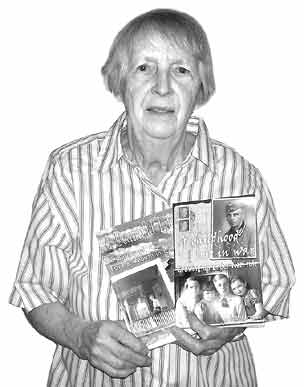
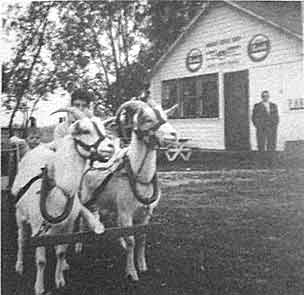
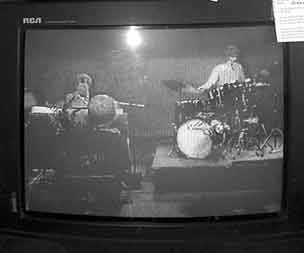
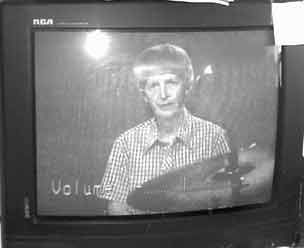

 Getting
“Pruny”
Getting
“Pruny”